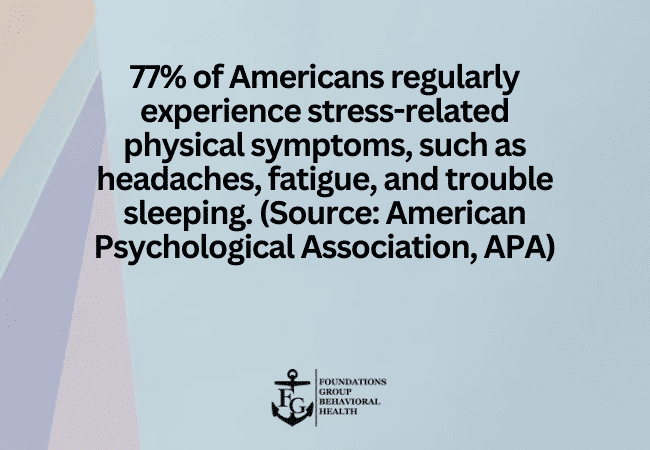As the new year begins, many people set resolutions focused on physical health, such as eating healthier or exercising more. However, mental health is just as important as physical well-being and should be prioritized when setting personal goals. Improving mental health requires intention, effort, and commitment, and making small, meaningful resolutions can lead to long-term emotional well-being.
At Foundations Group Behavioral Health, we understand that mental health resolutions are not just about quick fixes—they are about creating sustainable habits that promote balance, resilience, and emotional strength. Whether you’re struggling with anxiety, depression, ADHD, or co-occurring disorders, our Mental Health Treatment Programs, including Psychiatric Day Treatment, Half-Day Treatment Programs, and Outpatient Mental Health Programs, provide the guidance and tools needed for long-term mental wellness.
If you are looking for practical ways to improve your mental health this year, here are effective resolutions to help build emotional resilience and foster personal growth.
1. Prioritize Self-Care Every Day
Many people think of self-care as a luxury, but it is a necessity for mental health. Self-care is about intentionally making time for activities that recharge your mind and body, reducing stress, and preventing burnout.
How to Prioritize Self-Care:
- Set daily self-care routines: Dedicate time for relaxation, hobbies, and mindfulness.
- Get enough sleep: Aim for 7-9 hours per night to improve mood and cognitive function.
- Practice relaxation techniques: Deep breathing, meditation, or journaling can help manage stress.
- Say ‘no’ to burnout: Set boundaries to avoid overcommitting to work, school, or social obligations.
When to Seek Support: If stress and anxiety are overwhelming despite self-care efforts, a structured Anxiety Treatment Program or Outpatient Mental Health Program may help manage symptoms effectively.
2. Seek Professional Mental Health Support
One of the most impactful resolutions you can make is committing to professional mental health support when needed. Therapy and structured treatment programs provide valuable coping skills, emotional insight, and personalized care.
Ways to Seek Professional Support:
- Start therapy: Speaking with a licensed therapist can help address unresolved emotions and provide practical strategies for mental well-being.
- Join a support group: Engaging with others facing similar struggles can foster connection and healing.
- Explore structured treatment programs: Programs such as Psychiatric Day Treatment or Half-Day Treatment Programs offer intensive care for individuals needing additional support.
When to Seek Professional Help: If symptoms of anxiety, depression, ADHD, or trauma interfere with daily life, consider a Behavioral Health Treatment Center in Massachusetts to explore treatment options tailored to your needs.
3. Improve Your Sleep Habits
Lack of sleep is directly linked to increased stress, anxiety, and depression. Quality sleep is essential for emotional regulation, concentration, and overall well-being.
How to Improve Sleep:
- Create a bedtime routine: Establish a consistent sleep schedule to regulate your body clock.
- Reduce screen time before bed: Avoid using phones, tablets, or computers at least an hour before sleeping to improve sleep quality.
- Limit caffeine and alcohol intake: Stimulants can interfere with deep sleep cycles.
- Practice relaxation techniques: Meditation, deep breathing, or reading a book before bed can help prepare the mind for rest.
When to Seek Support: Chronic sleep disturbances may be linked to underlying mental health conditions, and addressing them through a Depressive Disorder Treatment Program or Anxiety Treatment Program can lead to better sleep and improved well-being.
4. Build Healthy Social Connections
Human connection plays a vital role in mental health and emotional resilience. Research shows that strong social relationships reduce stress, lower anxiety, and improve overall happiness.
Ways to Strengthen Social Connections:
- Make time for family and friends: Prioritize meaningful conversations and quality time with loved ones.
- Engage in social activities: Join a club, participate in group therapy, or volunteer to meet like-minded people.
- Set boundaries in toxic relationships: Distance yourself from unhealthy dynamics that contribute to stress and anxiety.
- Ask for support when needed: Reaching out to a trusted friend or therapist can provide emotional relief.
When to Seek Support: If social anxiety or past trauma makes it difficult to form relationships, therapy or an Outpatient Mental Health Program can help build confidence and communication skills.
5. Practice Mindfulness and Gratitude
Mindfulness and gratitude are powerful tools for improving mental health by shifting focus from stress and worry to appreciation and awareness of the present moment.
Mindfulness Practices to Try:
- Daily meditation: Even 5-10 minutes of mindfulness meditation can reduce stress and improve emotional regulation.
- Gratitude journaling: Write down three things you’re grateful for each day to develop a more positive mindset.
- Focus on deep breathing: Intentional breathing exercises help lower stress and improve focus.
- Engage in mindful activities: Yoga, walking in nature, or listening to calming music can help cultivate mindfulness.
When to Seek Support: If mindfulness techniques alone do not relieve anxiety, structured Anxiety Treatment Programs or therapy can provide additional strategies for managing stress.
6. Take Care of Your Physical Health
Mental and physical health are deeply connected. A strong body supports a strong mind, and making small, consistent changes to your lifestyle can significantly impact mental well-being.
How to Improve Physical Health for Mental Wellness:
- Exercise regularly: Even 30 minutes of movement a day can help reduce symptoms of anxiety and depression.
- Eat a balanced diet: Proper nutrition fuels brain function and stabilizes mood.
- Stay hydrated: Dehydration can lead to fatigue and irritability.
- Limit substance use: Alcohol, caffeine, and recreational drugs can impact mental clarity and mood stability.
When to Seek Support: If physical health concerns contribute to mental health struggles, a Co-Occurring Disorder Treatment Program may help address both conditions simultaneously.
7. Set Boundaries and Manage Stress Effectively
Poor boundaries and excessive stress can lead to burnout and emotional exhaustion. Learning to set limits and prioritize well-being is essential for long-term mental health.
Ways to Set Boundaries and Reduce Stress:
- Learn to say no: Prioritize personal well-being over unnecessary commitments.
- Manage workload effectively: Break tasks into smaller steps and delegate when possible.
- Create a work-life balance: Avoid overworking and make time for relaxation.
- Engage in stress-reducing activities: Exercise, hobbies, or spending time with loved ones can help relieve tension.
When to Seek Support: Chronic stress may indicate the need for structured mental health treatment, such as a Half-Day Treatment Program to develop stress management skills.

Making Mental Health Resolutions Sustainable
Setting mental health resolutions is only the first step—the key to success is consistency, self-compassion, and adaptability.
Tips for Sticking to Mental Health Resolutions:
- Start small: Focus on one or two changes at a time rather than overwhelming yourself with multiple goals.
- Track progress: Keep a journal or use mental health apps to monitor growth.
- Celebrate achievements: Acknowledge even small victories in your journey.
- Seek professional guidance: Therapy and mental health treatment programs provide structured support for lasting change.
Conclusion
Improving mental health is a lifelong journey, not a one-time resolution. By prioritizing self-care, professional support, social connections, mindfulness, physical health, and stress management, you can create a healthier and more balanced life.
At Foundations Group Behavioral Health, we offer Psychiatric Day Treatment, Half-Day Treatment Programs, and Outpatient Mental Health Programs to help individuals achieve lasting mental wellness.
If you’re ready to take the next step in improving your mental health, call us today at 888.685.9730 to explore personalized treatment options. Your mental health matters—commit to it today and build a healthier future.
FAQ on Mental Health Resolutions
Why are mental health resolutions important?
Mental health resolutions help individuals develop healthier habits, manage stress, and prioritize emotional well-being. Small, consistent changes can lead to lasting improvements in mental health.
What are some simple mental health resolutions I can start today?
Some great resolutions include prioritizing self-care, improving sleep habits, practicing mindfulness, seeking therapy, setting boundaries, and fostering strong social connections.
How can professional therapy help with mental health resolutions?
Therapy provides tools to manage anxiety, depression, and stress while offering guidance on creating and maintaining healthy mental habits. Programs like Outpatient Mental Health Programs offer structured support.
What are the benefits of Psychiatric Day Treatment for mental health improvement?
Psychiatric Day Treatment is a structured program that provides intensive therapy, coping strategies, and medication management for individuals needing more support than traditional therapy sessions.
How does self-care improve mental health?
Self-care helps reduce stress, improve mood, and increase emotional resilience. Activities such as meditation, exercise, and adequate sleep support overall mental well-being.
Can setting boundaries improve my mental health?
Yes, setting boundaries prevents burnout, reduces stress, and helps you prioritize your well-being by managing relationships and responsibilities effectively.
How does an Anxiety Treatment Program help with stress management?
An Anxiety Treatment Program teaches coping techniques, relaxation methods, and cognitive behavioral strategies to reduce excessive worry and improve emotional regulation.
What role does physical health play in mental well-being?
Exercise, nutrition, and sleep significantly impact mental health by regulating mood, energy levels, and cognitive function. Healthy habits contribute to overall emotional balance.








